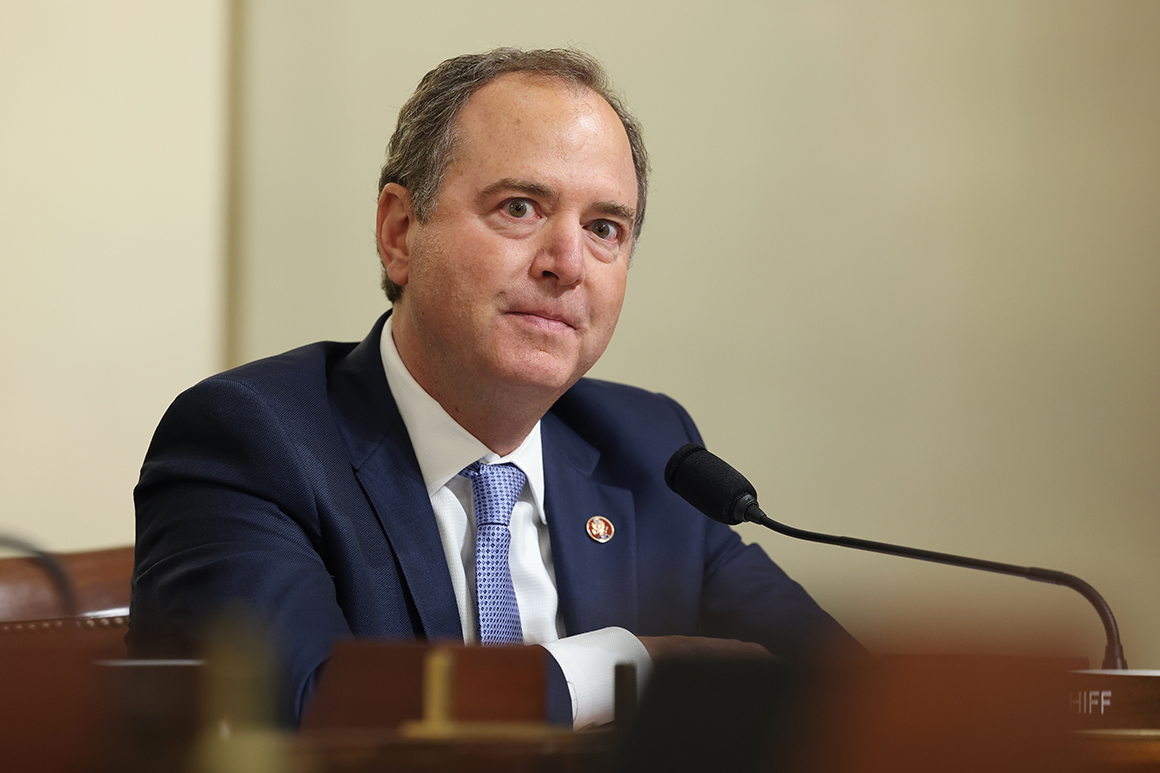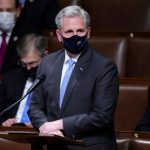Top Democratic lawmakers are urging President Joe Biden to ignore an Aug. 31 deadline to withdraw all U.S. troops from Afghanistan, arguing that it would be nearly impossible to evacuate all American citizens and Afghan allies from the country before that date.
The pressure campaign ignited as administration officials brief lawmakers on Capitol Hill this week about the deteriorating situation in Kabul, where the U.S. military is racing to evacuate as many people as possible from the Taliban-controlled country. Members of the House Intelligence Committee emerged from a briefing on Monday increasingly pessimistic about the prospects of a successful operation.
“I don’t see a scenario under which we get our folks out” by Aug. 31, said Rep. Jason Crow (D-Colo.), an Intelligence Committee member and former Army Ranger who served in Afghanistan. “The bottom line is, these are our people. These are our citizens. These are our Afghan partners, and we have to make a commitment to get them out.”
Rep. Adam Schiff (D-Calif.), who chairs the Intelligence panel, told reporters Monday night that the U.S. should “maintain a military presence as long as is necessary to get all U.S. persons out, and to meet our moral and ethical obligation to our Afghan partners.” He agreed with Crow that it isn’t possible to complete the evacuations before the end of the month.
As lawmakers begin to examine what went wrong with the U.S. withdrawal, they’re largely maintaining that the ensuing chaos from a swift Taliban takeover was not the result of an intelligence failure. Instead, Schiff said, intelligence “assessments of the Afghan government’s ability to maintain itself became increasingly pessimistic over the course of the last six months.”
Biden has come under heavy scrutiny from members of his own party for not starting the evacuations sooner, especially as the Taliban swept through Afghanistan earlier this month and took over the capital city of Kabul, forcing the president to deploy nearly 6,000 troops to quickly secure the main airport as the evacuation hub.
Biden has said the U.S. will evacuate all Americans and qualified Afghans, but has not telegraphed a strategy for continuing those operations past Aug. 31, the previously-negotiated deadline for U.S. troops to fully withdraw. Complicating matters further, Biden could be forced to begin pulling out troops from the Kabul airport later this week in order to meet the end-of-month deadline.
As Biden faces pressure from his Democratic allies to keep U.S. troops on the ground as long as necessary, the Taliban is asserting that the U.S. should complete the withdrawal by Aug. 31. Taliban spokesperson Zabihullah Mujahid said on Tuesday that the militant group will not accept any extensions.
Pentagon press secretary John Kirby said earlier Tuesday that there was “no change to the timeline of the mission.”
Biden is scheduled to speak Tuesday afternoon on the Afghanistan crisis, and his top national security officials are slated to brief all House members in a classified setting on Tuesday morning.
In the meantime, Biden’s allies assert that the crisis in Kabul was unavoidable and that the president made the right decision to withdraw from Afghanistan. Sen. Chris Murphy (D-Conn.) said it was “absolutely fantastical thinking to believe that we could have avoided some of these scenes amidst that unexpected collapse” of the Afghan government, which rapidly fell to the Taliban in a stunning fashion.
“This idea that they could have started this massive evacuation in the spring without prompting chaos and collapse is fantastical,” Murphy said. “And the idea that after the collapse of the government, we could have avoided the chaos and confusion is also fantastical.”
Most Democrats, though, are eager to more fully examine the Biden administration’s miscues during the withdrawal. Schiff has pledged “vigorous oversight of what went wrong in our departure from Afghanistan” — but he said that review will also look at the failures of the last 20 years, including the failure to stand up a “self-sustaining” Afghan government that could head off the Taliban.
“With respect to the objective of standing up a government that would earn the support of the Afghan people, that mission failed,” Schiff said. “And we have to ask ourselves some difficult questions about why that effort resulted in failure.”
Burgess Everett contributed to this report.



















